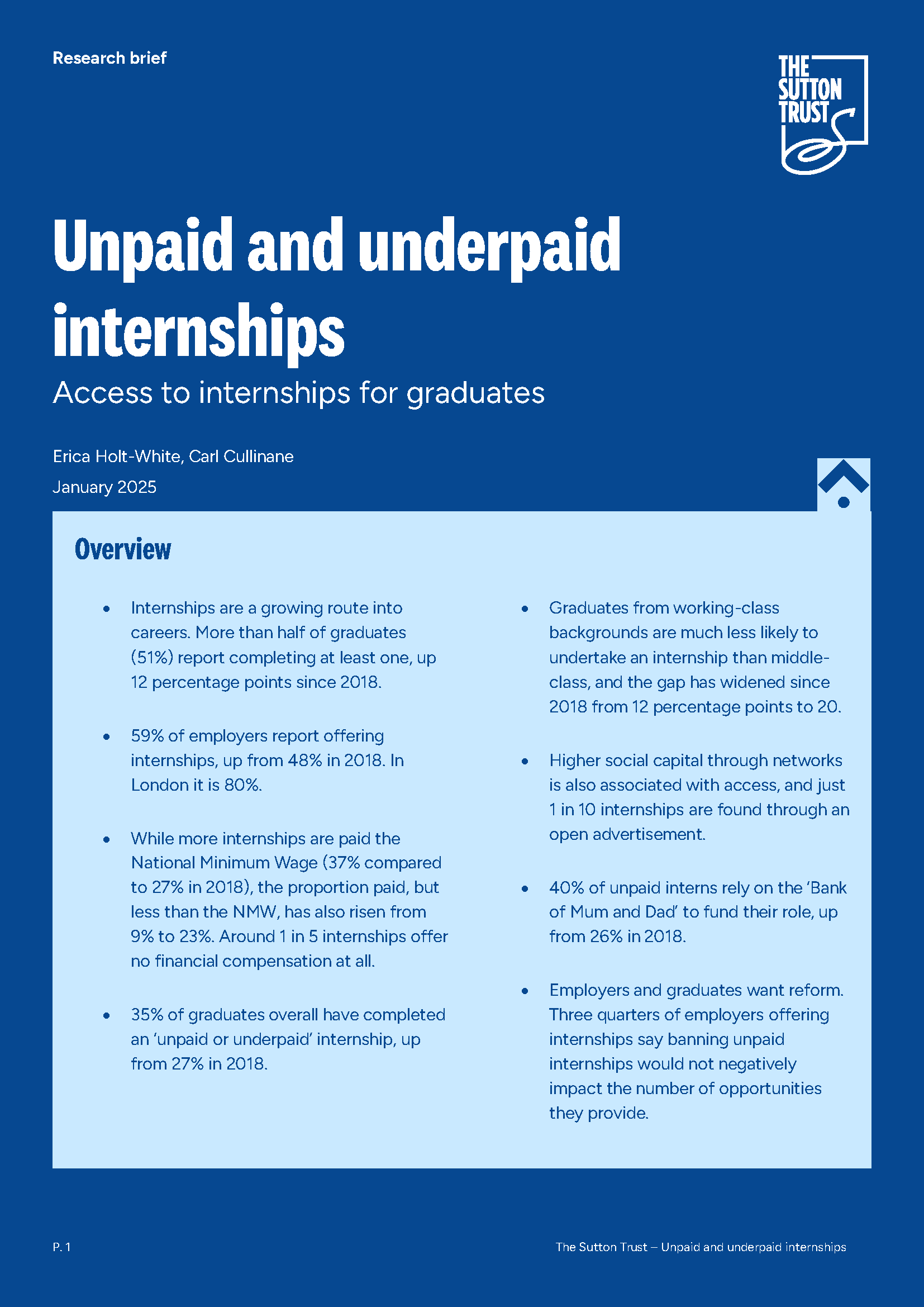Internships have grown to become a crucial part of the graduate job market. Offering graduates an invaluable opportunity to gain hands-on experience, develop key skills, and build their networks, they can be formative experiences for those trying to kickstart their career.
But our previous research has highlighted a persistent and pervasive problem with internships – many of them are paid below the minimum wage, only offer expenses or are entirely unpaid. Rather than offering a helping hand, this type of practice is acting as a major barrier to social mobility and fair access to competitive professions for many young people.
With the Government soon expected to announce tighter controls on unpaid work, this report provides an updated picture of the graduate internship market. Surveying both graduates and employers, it takes a renewed look at graduate internship opportunities, pay and access, discussing what can be done to ensure that internships routes are open to all.
